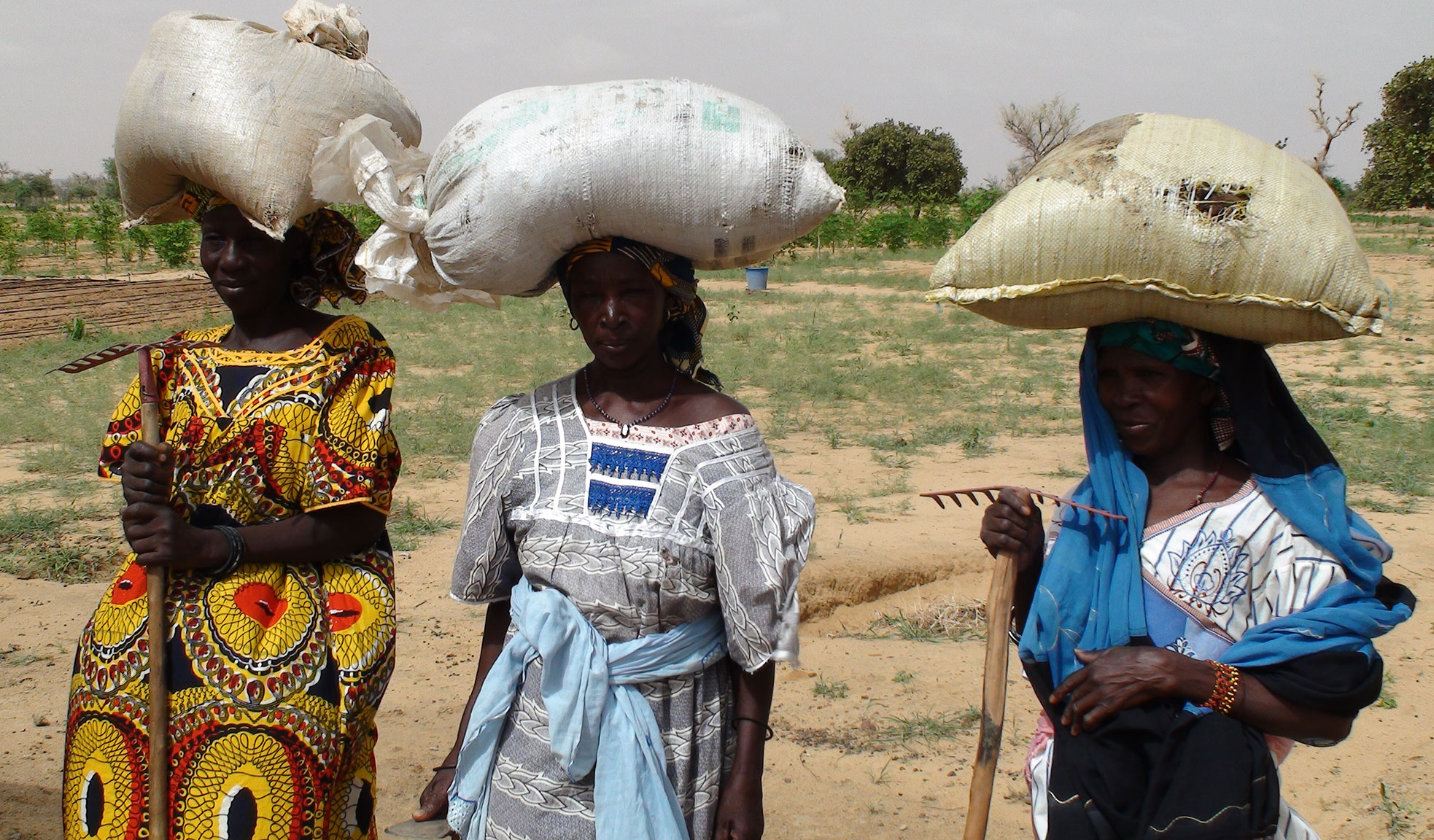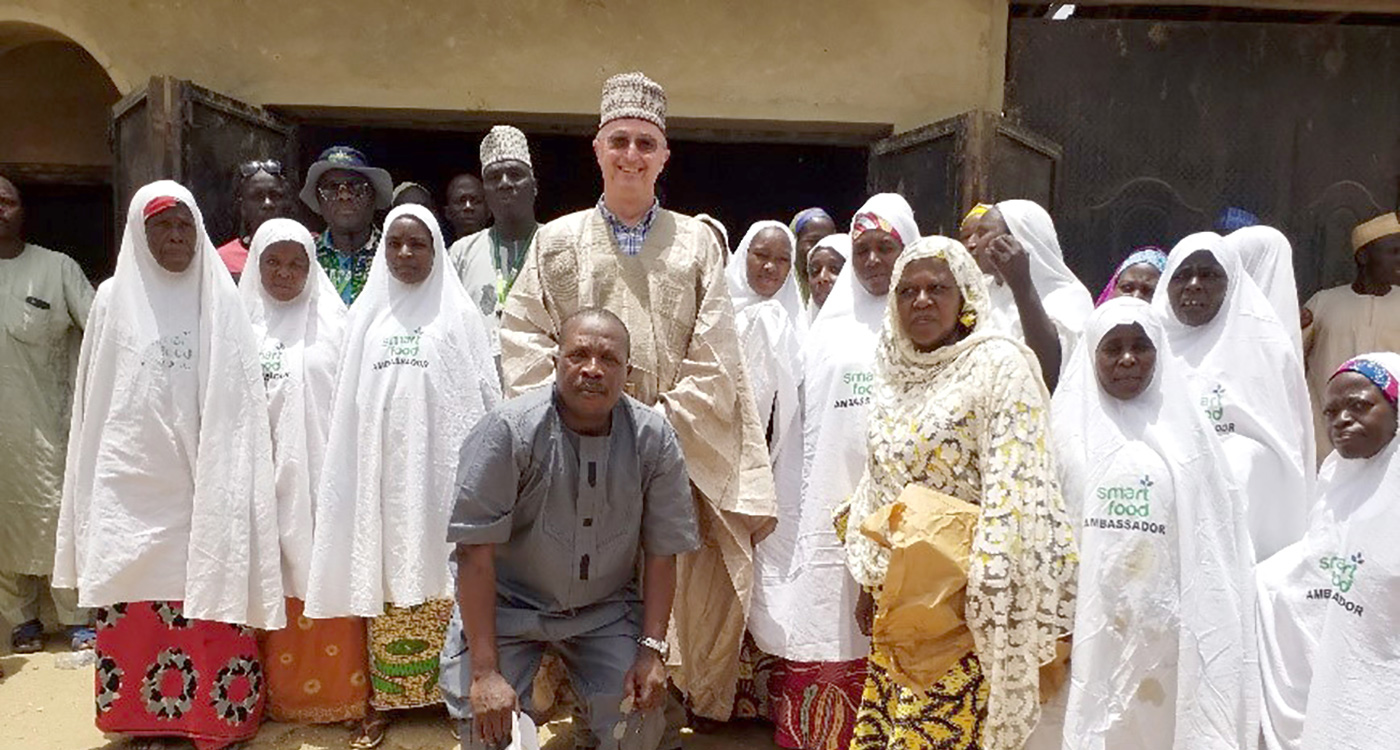Niger, situated in the Sahel region, is a landlocked country navigating significant challenges in its development. Despite facing obstacles, it is crucial to note that Niger is actively addressing these issues. While currently ranking among the lowest in the Human Development Index (HDI) globally, the country's population of 24.9 million people experiences a high annual growth rate of 4 percent, one of the highest worldwide. This rapid population increase, although presenting challenges, also underscores the potential for dynamic growth and development.
The March 2022 Cadre Harmonize (CH) assessment brought attention to the severity of the food crisis in Niger. It revealed that over 4.4 million people, representing more than 17 percent of the population, are facing acute food insecurity in 2022. Additionally, a considerable 6.8 million people are classified as chronically food insecure. These statistics, while highlighting existing challenges, also serve as a baseline for targeted efforts to improve food security and living conditions.

Despite challenges, Niger's government has launched ambitious initiatives like the 3N initiative (Nigeriens Nourish Nigeriens) and flagship programs such as the Integrated Production and Pest Management Programme in Africa. Although the country continues to grapple with challenges such as endemic poverty, a harsh climate, and heavy reliance on agriculture, these initiatives showcase a commitment to positive change. Agriculture, being the backbone of Niger's economy, employs the majority of its population and significantly contributes to its Gross Domestic Product (GDP). While the reliance on rainfed agriculture poses vulnerability to climate change impacts, it also highlights opportunities for sustainable agricultural practices.
To address challenges and build resilience in the agricultural sector, initiatives focusing on sustainable land and water management, climate-smart agricultural practices, and the promotion of drought- tolerant and high-yielding crop varieties are being prioritized.
Collaborative efforts involving the government, research institutions like ICRISAT, and international organizations are crucial in developing and implementing solutions that can improve food security, alleviate poverty, and foster sustainable agricultural practices in Niger. By investing in agriculture and supporting rural communities, Niger is actively working towards achieving greater food self- sufficiency and improved livelihoods for its people, paving the way for a more secure and prosperous future.
In 1981, ICRISAT joined forces with the Government of Niger to establish the ICRISAT Sahelian Center (ISC) on a 500-hectare site in Sadoré. The ISC, inaugurated in 1989, stands as a beacon of cutting-edge research facilities, equipped with specialized laboratories for soil and plant analysis, crop physiology/biotechnology, aflatoxin analysis, millet genetics, and entomology.
ICRISAT's agenda in Niger harmonizes seamlessly with the country's vision to reclaim degraded lands and achieve food self-sufficiency, even in the face of formidable climatic challenges. To realize these goals, ICRISAT has spearheaded numerous transformative initiatives. Among them are the African Market Garden, the Sahelian Ecofarm, bio-reclamation of degraded land, collection and preservation of plant genetic resources, crop improvement and diversification, natural resources management, soil fertility enhancement, and capacity building for stakeholders. An unwavering commitment to women's empowerment is also central to ICRISAT's efforts, seeking to foster income generation activities, improve nutrition, and develop agricultural commodity markets.

At the Sadore station, the ICRISAT regional genebank, founded in 1991, fulfills a vital role in conserving accessions of Pearl millet, Sorghum, Groundnut, and Pigeonpea from African countries, including West and Central Africa, through long and medium-term storage. Over the years, the genebank has provided seed samples to researchers under the International Treaty on Plant Genetic Resources for Food and Agriculture, contributing significantly to the conservation of National Agricultural Research System (NARS) collections and capacity building of NARS in the management and utilization of plant genetic resources.
Some of ICRISAT's achievements in Niger include:
Over 20 pearl millet open-pollinated varieties, including popular ones like ICMV-IS 99001, ICMV-IS 89305, ICMV-IS 94206, and SOSAT-C88, have been developed and released.
The dissemination of 12 improved varieties of groundnut has led to enhanced production and livelihoods for farmers in the Dosso and Maradi regions.
More than 151 varieties of fruit trees and leafy vegetables, including Pomme du Sahel (Ziziphus mauritiana), Icri-xina tomato, figs, grapes, date palm, pomegranates, pomelo, and various citrus species, have been introduced in Niger, enhancing dietary diversity and promoting high-temperature-adapted vegetable varieties.
In collaboration with partners, ICRISAT has successfully demonstrated the benefits of Bio-reclamation of Degraded Land (BDL) and fertilizer microdosing technologies in over 300 communities. This initiative has positively impacted 10,770 women in 172 villages, aiming to restore the productivity of barren lateritic soils in the country.
ICRISAT and the Niger government share a common mission to enhance rural livelihoods, manage natural resources more effectively, and promote sustainable technology options for poverty reduction. Looking ahead, ICRISAT is actively strengthening its partnership with the national agricultural research and extension system (NARES), producers, development workers, and the private sector. With a focus on integrated climate-smart technologies and approaches, the organization aims to enhance inclusive crop-livestock systems and value chains, elevate incomes, reduce poverty, and improve nutrition and health in Niger. This unwavering commitment ensures a promising future as ICRISAT continues to play a pivotal role in shaping a more resilient and prosperous agricultural landscape for Niger's farmers and communities.
or scan the QR 
Sorghum
Pearl Millet
Groundnut

ICRISAT - Niger
Niamey
Phone: +(227) 20722725, 20722626
Fax: +227 20734329
Email: icrisat-ner@icrisat.org
Address: BP 12404, Niamey, Niger (via Paris)
13 Feb 2026